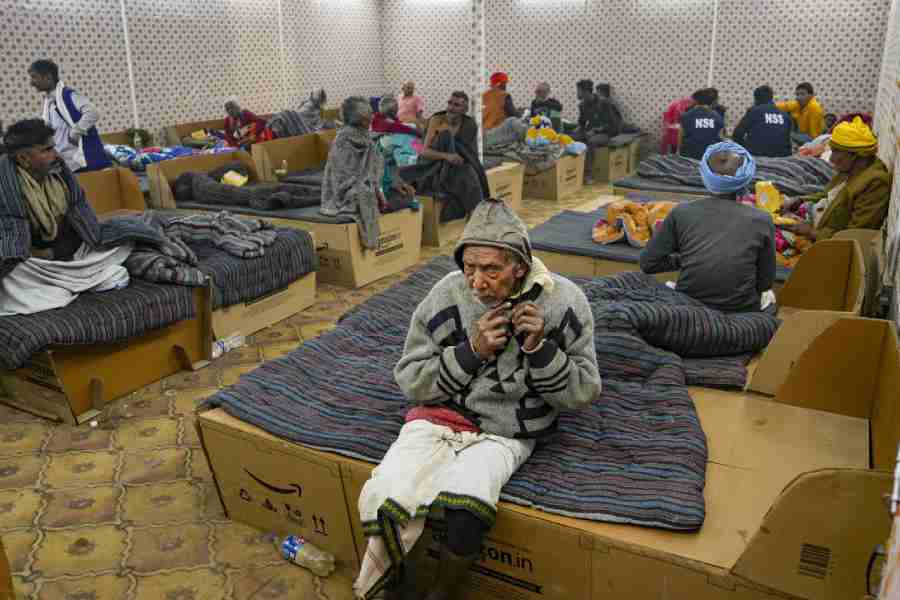All We Imagine As Light is the first drop of rain on a thirsting, parched piece of land. It is a baby’s first cry right after the mother has endured immeasurable labour pain. On a relatively frivolous note, it is the rush of endorphins that follows an intense workout. All We Imagine As Light is bittersweet; it is pain and happiness rolled into one. In other words, it is life.
Payal Kapadia’s much-celebrated and fittingly feted non-fiction feature film debut is a beautiful piece of cinema that doesn’t feel like cinema. There is no posturing and no pretence. It is, as mentioned a few sentences ago, a slice-of-life portrait of love and longing, of hope and of quiet aspiration.
Loneliness forms the crux of All We Imagine As Light, which when juxtaposed against the constant movement of Mumbai, the city that is said to never sleep, becomes even more accentuated, representing the geographical as well as emotional displacement of all its characters.
The film opens before sunrise with a lengthy panning shot of who we know as ‘Mumbaikars’ setting up sidewalk markets, unloading their goods for sale, with the city already wide awake. People speak in voiceover, establishing Mumbai as the city of resilience, of impermanence, of dreams, lost and realised. We then move to a defining shot of Prabha (Kani Kusruti) standing in the train on her way to work. The train moves but she is completely still, a fitting metaphor for who Prabha is — rock-solid even in the most trying circumstances.
Prabha works as a nurse at a busy hospital but largely remains aloof. Her husband left for Germany soon after marriage and it is clear that she has been abandoned by him. Till one day, a rice cooker arriving anonymously from Germany, becomes a reminder of his existence and causes Prabha to experience a swirl of emotions.
The second woman in Kapadia’s tapestry of real people battling real problems in the canvas of life is Prabha’s roommate Anu (Divya Prabha). The polar opposite of Prabha, Anu wants happiness, sex and freedom and is unapologetic about it, which includes secretly meeting up with her Muslim boyfriend Shiaz (Hridhu Haroon).
Prabha’s widowed friend Parvaty (Chhaya Kadam) works as a cook at the hospital and is being evicted from the shanty apartment she has lived in for decades. Parvaty doesn’t have papers with proof of ownership (Kapadia makes a knowing political statement here), and Prabha helps the older woman find a lawyer. At one point, the two women engage in an act of mild rebellion, laughing as they throw rocks at a billboard announcing the building’s development that will come up in place of Parvaty’s home. The billboard declares: ‘class Is a privilege reserved for the privileged’. Again, Kapadia tells it as it is.
The three narratives are interwoven but proceed on separate tracks, creating a mosaic of city life and relationships. Prabha has a subtle, unnamed connection with Dr. Manoj (Azees Nedumangad). They have a sweet but complicated equation, the complexity not brought on by themselves but by their situation in life.
Moving through the quagmire of life in Mumbai, Kapadia, aided by cinematographer Ranabir Das, often shows close-ups of the three women’s faces, her years spent as a documentary filmmaker helping her achieve a unique portraiture.
Parvaty eventually decides to move back to her seaside village, prompting the final chapter of the film, which makes us feel at one with all three women and sets off a new direction for them.
What works for All We Imagine As Light — the title itself is derived from a painting by the filmmaker’s mother, the artist Nalini Malani — is Kapadia’s cinematic language, which is specific as well as universal. The film is a distinct and moving dissection of both womanhood and the immigrant experience, both of which contribute to its specificity and its universality.
Though it unfolds at a leisurely pace and it is the patient viewers who will be rewarded the most, All We Imagine As Light has a hypnotic simplicity that is impossible to ignore.
The film ultimately works as a celebration and reaffirmation of the power and the importance of human connection. More significantly, it heralds the arrival of Kapadia as a distinctive voice to watch out for.










